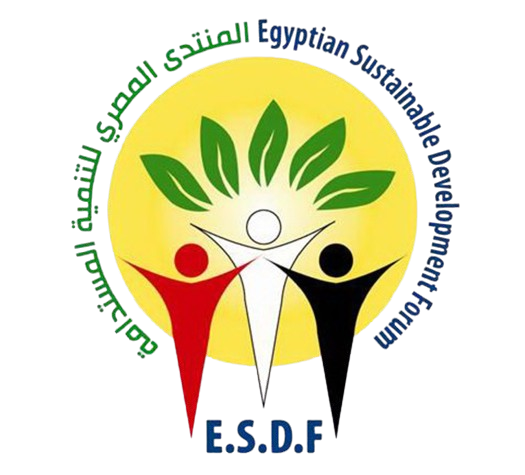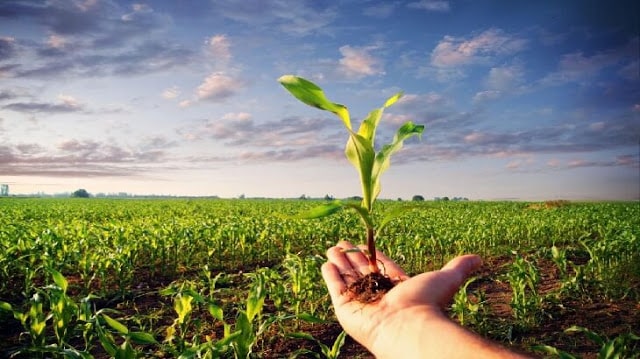“Sustainable Agricultural Communities… Opportunities and Challenges”
There is no doubt that the agricultural sector will remain one of the most important sectors of the Egyptian national economy. This importance comes from the fact that the agricultural sector plays a major role in supporting the national income and achieving food security, providing the necessary raw materials for many important industries, and agricultural exports contribute to improving the balance of payments.
Since the term of His Excellency President Abdel Fattah El-Sisi, Egypt has witnessed the launch of a number of giant agricultural development projects.. most notably the one and a half million feddan project, the one hundred thousand greenhouse project, the revival of agricultural development projects in Toshka and North Sinai, and livestock and fish farming development projects. In addition to the efforts being made to improve the conditions of the Egyptian farmer as the pillar and backbone of this sector.
In light of this national movement in the field of Egyptian agriculture, which aims to achieve more food security.
And believing in the importance of the role of civil society organizations in maximizing their contribution to all national efforts made to achieve the desired sustainable development, in an effort to raise priority issues for discussion in order to form a civil vision to integrate with the proposed visions and policies.
The forum believes that this matter has become extremely dangerous, especially in light of the global Corona pandemic, which has greatly pressured the need for state policies to pay attention to the issue of food security, especially wheat crops and other strategic commodities that are on the list of food imports in light of water challenges, agricultural land challenges and accompanying technologies.
The forum believes that updating the Egyptian Agricultural Strategy 2030 in light of the higher directives requires the need to develop specific programs as much as possible for self-sufficiency and separating the problem of the first climatic zones for development.
For this reason, the Egyptian Forum for Sustainable Development was keen to organize a consultative meeting entitled “Sustainable Agricultural Communities.. Opportunities and Challenges”, as part of the activities of the National Sustainable Development Week in its sixth edition. The meeting was held on Saturday, December 12, 2020, at the Agricultural Club, headed by Professor Dr. Imad El-Din Adly, Chairman of the Board of Trustees of the Forum, and attended by a group of professors, experts and scientists specialized in various agricultural fields and policy makers in the agricultural and planning sectors, in addition to the participation of a number of representatives of civil society organizations and media professionals.
The meeting was enriched by the participation of a distinguished group of dedicated Egyptian experts as keynote speakers in this meeting, including Professor Dr. Ayman Farid Abu Hadid, former Minister of Agriculture and Land Reclamation and founding member of the forum, Professor Dr. Ismail Abdel Jalil, former head of the Desert Research Center, Professor Dr. Abdel Ghani El Gendy, Dean of the Faculty of Desert Agriculture at Salman International University, Professor Dr. Hussein Mansour, Head of the Food Safety and Security Authority, Professor Dr. Magdy Allam, Environmental Expert and Secretary General of the Forum, and Professor Dr. Hala Youssef, Professor of Sociology and founding member of the forum. The meeting focused on presenting a number of main axes, most notably shedding light on the agricultural strategy and its development, in addition to presenting the axis of limited resources and their impact on food security, highlighting the issue of desertification as one of the most important challenges facing the achievement of sustainable development, the extent of the impact of food safety on the exchange movement between local and global markets, as well as land reclamation projects and ways of coordination between them, the importance of developing the irrigation system to achieve sustainable agricultural development, the importance of integrating agricultural and industrial activities to increase the marketing value of products, especially exports, and the necessity of providing sustainable planning for agricultural communities in a way that takes into account social considerations.
In the fruits of the discussion session that was managed after the opening speeches and the scientific session managed by the speakers, this session came out with a set of important recommendations, the foremost of which was the emphasis on the importance of forming a higher committee for agricultural scientific research under the direct supervision of the presidency of the republic, contributing to translating the vision of the Egyptian state in developing the agricultural sector and working to coordinate between the various agricultural research centers, Egyptian universities, those interested in the agricultural sector, and civil society organizations concerned with the same issues. In addition to the need to adopt work on modifying the crop composition and improving strategic crop varieties to increase their productivity and tolerance to adverse environmental conditions such as salinity, drought, disease resistance and mechanized agriculture, taking into account the effects of climate change on the agricultural sector. Focus on the importance of food safety and security by controlling the pesticide and fertilizer market and tightening monitoring procedures, working efficiently on the proper transformation to the concept of a productive rural village in its comprehensive sense and benefiting from the comparative advantage of each governorate, and what it is famous for in terms of agricultural, animal and poultry products.
The need to pay attention to digitization and expand the establishment of an electronic agricultural services center through which the agricultural holding mechanization system is implemented, and support the farmer with guidance information and accurate information.
Warning of the danger of desertification and the need to propose initiatives with the help of civil society and development partners that aim to contribute to reducing desertification rates in order to preserve agricultural resources and take into account the availability of the required food security.
Paying attention to the agricultural extension system in terms of re-establishing the agricultural extension graduate system, so that it is preferable for them to be graduates of specialized departments, provided that they have the opportunity to obtain postgraduate studies in the field of agricultural extension so that they are more efficient and influential. Keenness to increase the trend in using solar energy or wind energy or what is called clean energy.
We have to trust the Egyptian farmer as he is qualified to learn everything new and is able to achieve good results in dealing with smart agriculture and responds to guidance
Effective agriculture and work must be done to raise awareness and build its capabilities.
Proposing that the Egyptian Forum for Sustainable Development organize coordination meetings with the College of Desert Agriculture at Salman University to hold a series of coordination meetings and workshops for the purpose of preparing a complete proposal on the development of the Sinai region, to be submitted to the concerned gentlemen from the owners and decision-makers

